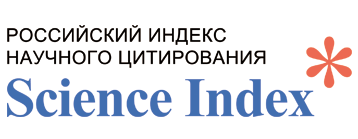SYNTHESIS AND STUDY OF THE INFLUENCE OF ALKALI CONCENTRATION AND TEMPERATURE ON THE PHYSICOCHEMICAL PROPERTIES OF CRYOGELS BASED ON GELATIN AND CHITOSAN
DOI:
https://doi.org/10.51580/2024-2.2710-1185.24Keywords:
cryogel, gelatin, chitosan, properties, polymerAbstract
Abstract. Introduction: Much of the polymer research is focused on improving existing polymers or developing new biomaterials with tunable properties. Natural polymers that have certain segments that contribute to an additional therapeutic effect are more often used as a biocompatible polymer. Polymers can be produced using a variety of methods, including covalent cross-linking, dynamic covalent cross-linking, physical cross-linking, cryopolymerization, 3D printing, electrospinning, etc. Cryopolymerization is a unique method and has several advantages over other methods. By cryofreezing it is possible to obtain a porous structure in which the size and volume of the pores can be controlled by changing the concentration of the initial monomers and temperature. The purpose of this study is to determine the effect of alkali concentration and cryopolymerization temperature on the properties of cryogels. The objects of study in this work are cryogels based on gelatin and chitosan. Methodology. The functional groups of the cryogels were determined by IR spectroscopy. The results of a study of the sorption and desorption of polymers are presented. The results of polymer degradation in phosphate-saline solution over 8 weeks are also shown. These studies were based on changes in mass, that is, they were carried out using the gravimetric method. Conclusion. The results of a study of the influence of alkali concentration and temperature on the physicochemical properties of cryogels based on gelatin and chitosan are presented. Cryogels based on gelatin and chitosan are synthesized without the use of harmful chemical cross-linking agents, which makes them attractive for tissue engineering.

















